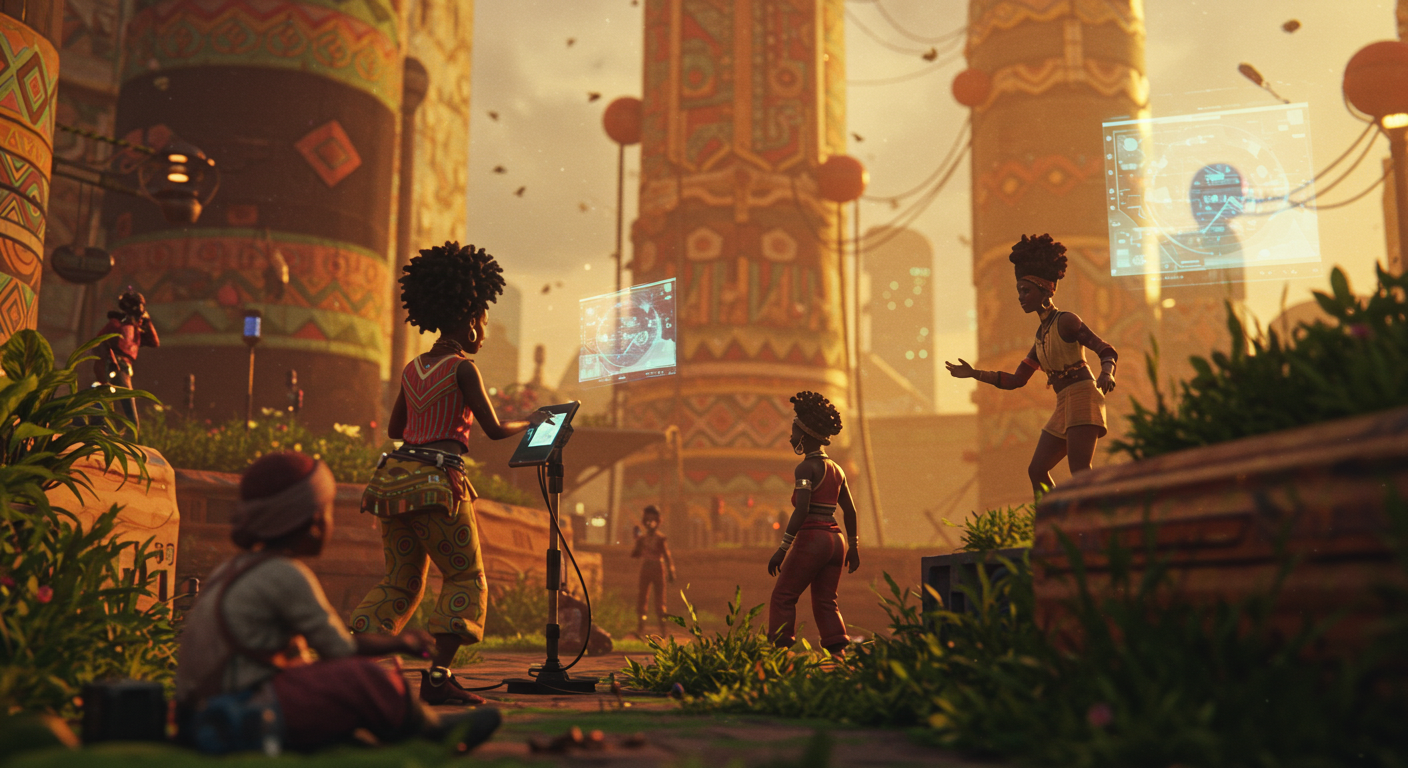Coding the Future: How Afro-Futurism is Shaping Gaming’s New Frontier
Afro-Futurism, the cultural aesthetic that fuses African heritage with speculative technology and forward-thinking narratives, is now thriving in a bold new space—indie video games. In this digital dimension, creators from across the African continent and diaspora are using pixels and code to explore themes of identity, liberation, resilience, and alternate futures.
For a long time, video games have been dominated by Eurocentric aesthetics and narratives. But Afro-Futurist developers are reprogramming this space, offering a unique lens on the future—one where African voices, visuals, and philosophies take center stage.
What is Afro-Futurism in Gaming?
Afro-Futurism combines science fiction, fantasy, historical fiction, and African cosmology to imagine futures where Black identity thrives. In gaming, this often manifests as:
Characters rooted in African mythology but operating in futuristic settings.
Game worlds shaped by African architecture, music, and spirituality.
Storylines that explore post-colonial themes, technological decolonization, and community.
Afro-Futurism doesn’t just ask “what if?”—it declares “we belong here too.”
Pioneering Afro-Futurist Games
Aurion: Legacy of the Kori-Odan (Kiro’o Games):
This game is often credited as the first truly Afro-Futurist RPG. Set in a fantastical African kingdom, it features a prince and princess navigating political power and spiritual duty. Its combat system, environment, and lore all draw heavily from West African traditions.Neon City Rumble (Nima Studios, South Africa):
Set in a dystopian Johannesburg, this fighting game fuses cyberpunk aesthetics with African street style, graffiti, and local dialects.On a Roll (Kukua, Kenya):
Though aimed at kids, this educational platformer celebrates African inventions, historical figures, and Afro-tech ideals in playful and immersive ways.
Beyond the Game: Culture as Resistance
Afro-Futurist gaming is not just aesthetic—it’s political. In a world where Africa is often portrayed as poor, war-torn, or backwards, these games paint different pictures: technologically advanced cities, empowered women warriors, and harmonious coexistence with the environment.
They challenge the mainstream gaming industry’s one-dimensional representation of African people—often limited to tribal backdrops or warzones. Afro-Futurist games center African joy, wisdom, innovation, and sovereignty.
Accessibility and the Indie Spirit
Most Afro-Futurist games are produced by indie studios or solo developers. This independence allows for:
Creative freedom: Without the pressure of mass-market appeal, developers explore bold concepts.
Cultural specificity: Afro-Futurist games often incorporate indigenous languages, attire, and worldviews.
Player engagement: These games build loyal communities of players hungry for representation and meaning.
Platforms like itch.io, Kickstarter, and Steam allow these games to bypass traditional publishers, finding players organically through word of mouth and social media.
Global Recognition and Opportunities
Afro-Futurist games have been featured in international festivals such as:
Games for Change (New York)
IndieCade (California)
Africa Games Week (Cape Town)
They’ve also become case studies in universities and research on decolonizing tech and digital storytelling.
This attention is paving the way for more collaborations between African developers and global studios, not as outsourcing hubs—but as cultural leaders.
The Road Ahead: Expanding the Afro-Futurist Gameverse
As more African youth gain access to coding bootcamps, digital art tools, and creative funding, we can expect an even broader array of Afro-Futurist games. Themes may expand to:
Climate change and African eco-solutions
Diasporic reconnection and space travel
Reimagined African monarchies and matriarchies
Quantum traditions—spirituality meeting science
The tools are accessible. The imagination is limitless. The world is ready.
Final Word
Afro-Futurism in indie video games is more than a trend—it’s a movement. It’s storytelling through code, liberation through interactivity, and cultural pride rendered in high-definition. Africa is not just catching up to the gaming world—it’s rewriting it, one fantastical, future-forward level at a time.



